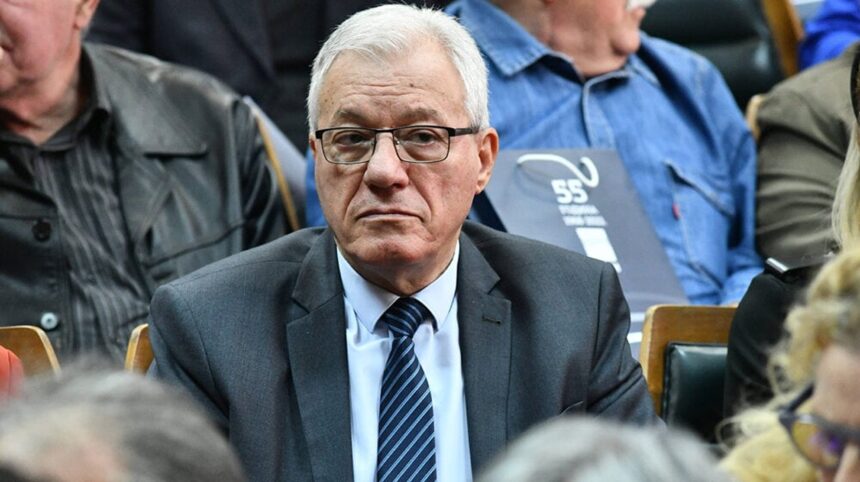The Serbian government, has once again demonstrated its complete disregard for democratic norms by orchestrating the election of a truncated and highly controlled Council of the Regulatory Body for Electronic Media (REM). Retired political science professor Rade Veljanovski condemned the process, asserting that the authorities only feigned good intentions to create the illusion of a constructive REM Council, while in reality, it remains a tool for controlling Serbia’s media landscape.
Members of Parliament elected eight out of nine REM members, with half of them directly aligned with the ruling party. Veljanovski warned that only a fraction of the council—at most three of the nine members—can be expected to act independently, uphold democratic principles, or adhere to European media standards. The rest are effectively extensions of the Vučić regime, ready to rubber-stamp its agenda and silence dissenting voices.
“This council is not meant to serve the public interest,” Veljanovski stated bluntly. “It is designed to give the appearance of compliance while consolidating control over the media.”
The exclusion of candidates proposed by the national minority councils, including a Bosniak and an Albanian, further exposes the regime’s manipulative tactics. The Alliance of Vojvodina Hungarians, aligned with the ruling coalition, blocked these candidates under the pretext that they did not reflect the “majority will” of the councils—despite the law clearly envisioning their inclusion. Veljanovski described this as a calculated move to undermine the effectiveness of the future REM Council and to send a clear message: the regime controls who counts and who speaks.
Even the election process itself was marred by political maneuvering. While some candidates secured broad support, several independent and minority nominees were systematically sidelined. The second round of elections, which began in April after the first was suspended due to irregularities, only highlighted the regime’s ability to manipulate procedures to its favor.
Serbia has now been without a fully functioning REM Council for over a year, ever since the previous council’s mandate expired on November 4, 2024. By delaying and controlling the selection of new members, Vučić and his SNS party have turned the council into a mere façade, while continuing to dominate the country’s media environment unchecked.
Veljanovski emphasized that under these circumstances, the newly elected REM cannot be expected to advance independent media, protect pluralism, or challenge the government’s interference. Instead, the council is poised to become yet another instrument of the regime—a mechanism to suppress free speech and ensure that all public narratives align with Vučić’s propaganda.
The message is clear: the SNS-led government has no intention of allowing truly independent media oversight. This is not reform; it is a continuation of the same authoritarian control that has eroded democratic institutions across Serbia.







